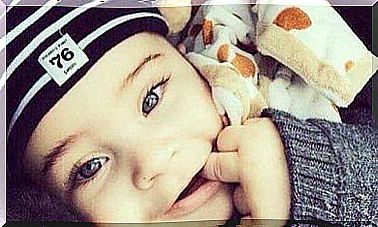Everything We Publish Online Is Still Online

In the wrong hands, everything we publish online about our children can be something used against them and to their detriment. One of the parents’ main tasks is to guarantee the children’s safety and security.
What we publish online cannot be easily removed again. If we publish things about our children, siblings or grandchildren that go viral, it will follow them for the rest of their lives.
Cyberbullying, cyberbullying and pedophilia can be avoided by taking the right precautions.
The consequences of what we do online are well known today. Everything we publish online is saved for good. No matter how hard we try, we can never completely remove it.
Therefore, we must be careful about what we and our children publish online. We should think twice before sharing something to make sure it is appropriate.
Overexposure and bullying on the internet
Cyberbullying can start between the ages of 10 and 12. Most children are connected with their devices and can send pictures.
It does not even include the content that adult family members upload. These images can sometimes be the cause of bullying.
A funny, inappropriate or poorly taken picture can be a source of cyberbullying.
Other children can save the image and publish it again. They can also post offensive comments or change the image. This is something that is very common on social networks nowadays.
The consequences of these chain publications can be dramatic. All you need is a page, a Facebook group or a profile to go viral.
The result of this can be traumatic for the child or adolescent affected.

When we publish something online, errors can be noticed
On social networks, we tend to pay attention to the funny, the ironic or the sarcastic. Our own interactions are usually to point out details or to laugh at a publication.
What we publish online about our children can in the wrong hands be something that is used against them and to their detriment.
Parents must be the main censors of their children’s and families’ publications. It is not difficult to verify if the content is offensive or not. Keep in mind that images can be changed.
Relatives can also post pictures that show your children without knowing their privacy settings. As a result, pictures or videos of your children can be seen by people all over the world.
The Sam Griner effect
Maybe his name is not very well known, but Sam is a child that many of us have seen online.
His image with a raised fist and a green shirt has been seen by millions of people online. This image became what we call a “mem”.
His mother published a picture of him on her profile in 2007. Now many of us know that picture, but we often forget that it is a photograph of a real person.
What happened to Sam Griner can happen to all the pictures we publish online. All you have to do is share a photo on Facebook or Instagram with your friends and followers.
What kind of pictures should we avoid?
- Close-up pictures: Do not publish pictures where the child seems to make funny faces or gestures. Clear gestures are the most important source of memes and funny pictures on the internet.
- Images with nudity: Even if it’s just a baby, publishing this type of photo can be dangerous. We must remember that there are users and sites dedicated to pedophilia and child pornography.
- Pictures with suggestive positions: This is especially true for young people. An innocent bag can easily become viral content.

Two recommendations to protect what you publish online
The simple habit of having your profile private is a great way to protect your child’s data. On Facebook, there is a configuration that only allows your friends to see your publications.
Twitter and Instagram also allow us to choose which people see our profiles.
We should think twice before tagging family and friends. When the content is tagged, it can be seen by people we do not even know. It is recommended that relatives check with you first before publishing pictures of your child.
In conclusion, it is important to think about what we publish online to protect our children’s well-being and integrity. These recommendations apply to both children and parents.









